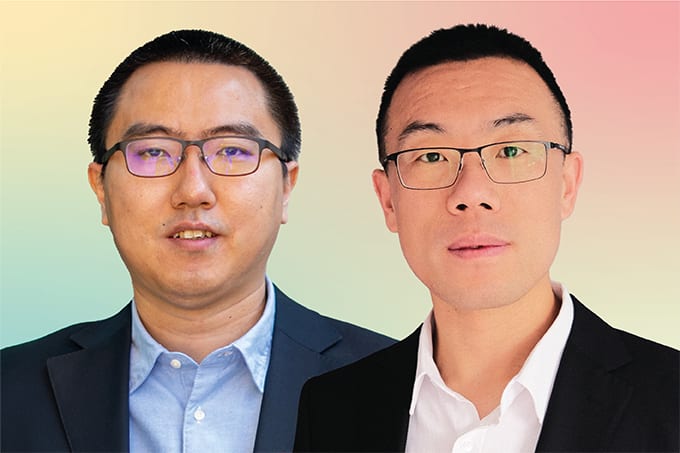
Not really! When I was a kid, I didn’t really think about science because everyone dreamt of being doctors or engineers – so I thought those were the best choices for careers. But when I went to college, I found that I liked chemistry; still, even while taking those courses I wasn’t sure what I wanted to do. But going to Manila to study also sparked a lifelong interest in the environment; I grew up in a village in the Philippines with a pristine environment and very clean rivers – we used to swim in them all the time. But when I went to the capital, I was shocked by the level of pollution – certainly no river swimming there.
I then moved to the US for my PhD in analytical chemistry at the University of Kansas, where I worked with the US Geological survey to investigate long-range atmospheric deposition of pesticides. Then, I did my postdoctoral training at the Swiss Federal Institute of Aquatic Science and Technology (EAWAG), where I developed methods for environmental analysis of pesticide metabolites at very low concentrations in the environment. Today, I’m a professor at the University of Buffalo and the Director of the RENEW Institute. Part of my job is to catalyze collaborations between interdisciplinary research groups to tackle problems related to energy, environment, and water.
I originally planned to go back to the Philippines to apply what I’d learned about the effects of chemical pollutants in the environment and how to minimize them. But, for personal reasons, I ended up staying in the US. However, I frequently collaborate with Philippine researchers and I actively participate in the activities of the Philippine-American Academy of Science and Engineering, which I am a member of, to help advance science and technology in the Philippines. We have annual meetings, put together white papers, and make proposals for the Philippine government to help them resolve environmental problems. I have also hosted students and scientists from the Philippines in my laboratory at the University at Buffalo, to provide them access to state-of-the-art analytical instruments for their research projects.
Recently, we’ve been looking at water reuse applications and implications. Supplies of clean water are running low, so there is a drive to recycle water – including wastewater. Groundwater, which we use to irrigate fields, is also becoming depleted due to climate change. Therefore, we’re looking at other sources of water, such as treated wastewater and stormwater (road runoffs).
Another area of research that I have been active in involves investigating the occurrence of antimicrobial resistance in the environment. Most of the studies have been done in hospitals and clinical settings, but antimicrobial resistance in the environment have also emerged as result of discharges from wastewater treatment plants and the agricultural use of antibiotics. Part of my Fulbright scholarship will involve looking into the contributions of wastewater treatment plant effluents in the development and maintenance of antimicrobial resistance in the environment. We’ll be using several analytical techniques – but mostly LC-MS – to detect antibiotic residues and other chemicals that may contribute to antimicrobial resistance in surface water.
One of the most satisfying aspects of my job is the influence I have on the next generation of scientists. Typically, I supervise 10–12 PhD students in my research group. When they graduate, they typically move on to three main tracks: industry, government, and academia. The students who end up in industry will (hopefully) be thinking about green chemistry to minimize the undesirable impacts that industrial chemicals may produce; the students who end up at the government agencies such as the Environmental Protection Agency, Food and Drug Administration, or the Department of Agriculture will be directly involved in regulations; and finally, the academics will be training the next generation of scientists – to carry over the same values I have instilled in them. I find it incredibly rewarding and motivating.
It’s also fascinating to see the lasting impact your work can have. For example, during my PhD, I discovered that a metabolite produced by a herbicide that is highly water soluble and thus leaches into ground water and persists and accumulates there. Back then, the regulations banned the herbicide, but there weren’t any specifics around the metabolite accumulating in groundwater. Now the metabolite is on the EPA’s Drinking water contaminant candidate list.
The same advice I gave to my daughter. There are only three things you need to think about when it comes to your career; do a job that is enjoyable, sufficiently well paid, and legal! Thinking about my own career, I could have made a lot more money in industry. In fact, I did just that before going into academia, but it wasn’t as enjoyable so the pay cut was worth it. I love that my work has an impact on future generations and on government regulations – it’s important to society. And I’m still able to do the things I enjoy – hobbies, travel, and so on. Oh, and it’s completely legal, of course!
My main aim right now is related to my recent appointment as Director of RENEW. I want to establish a center that will have a long-term impact. In the past, I’ve received funding from different agencies that lasts a few years and then dries up. With RENEW, I want to establish something that will outlive my term as Director and continue to address environmental problems long after I’m gone. Personally, I want to retire happy while I’m still physically active. There’s no retirement age for academics in the US and I have seen people work until they pass away. My aim, once my daughter has finished her studies and the COVID-19 restrictions are gone, is to travel the world.




